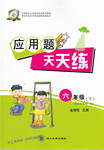题目内容
Most people know that Marie Curie was the first woman to win the Nobel Prize, and the first person to win it twice. However, few people know that she was also the mother of a Nobel Prize winner.
Born in September, 1897, Irene Curie was the first of the Curies' two daughters. Along with nine other children whose parents were also famous scholars, Irene studied in their own school, and her mother was one of the teachers. She finished her high school education at the College of Sévigné in Paris.
Irene entered the University of Paris in 1914 to prepare for a degree in mathematics and physics. When World War I began, Irene went to help her mother, who was using X-ray facilities(设备) to help save the lives of wounded soldiers. Irene continued the work by developing X-ray facilities in military hospitals in France and Belgium. Her services were recognized in the form of a Military’s Medal by the French government.
In 1918, Irene became her mother's assistant at the Curie Institute. In December 1924, Frederic Joliot joined the Institute, and Irene taught him the techniques required for his work. They soon fell in love and were married in 1926. Their daughter Helene was born in 1927 and their son Pierre five years later.
Like her mother, Irene combined family and career. Like her mother, Irene was awarded a Nobel Prize, along with her husband, in 1935. Unfortunately, also like her mother, she developed leukemia(白血病) because of her work with radioactivity(辐射能). Irene Joliot Curie died from leukemia on March 17, 1956.
1.Why was Irene Curie awarded a Military Medal?
A.Because she received a degree in mathematics.
B.Because she contributed to saving the wounded.
C.Because she won the Nobel Prize with Frederic.
D.Because she worked as a helper to her mother.
2.Where did Irene Curie meet her husband Frederic Joliot?
A.At the Curie Institute.
B.At the University of Paris.
C.At a military hospital.
D.At the College of Sévigné.
3. In which of the following aspects was Irene Curie different from her mother?
A.Irene worked with radioactivity.
B.Irene combined family and career.
C.Irene won the Nobel Prize once.
D.Irene died from leukemia.
 应用题天天练四川大学出版社系列答案
应用题天天练四川大学出版社系列答案

 each this level,especially when you first meet.Remember, you are trying to make a new friend,not scare your roommate away.And if your roommate doesn’t end up being your best friend,there is no need to worry about it.
each this level,especially when you first meet.Remember, you are trying to make a new friend,not scare your roommate away.And if your roommate doesn’t end up being your best friend,there is no need to worry about it.